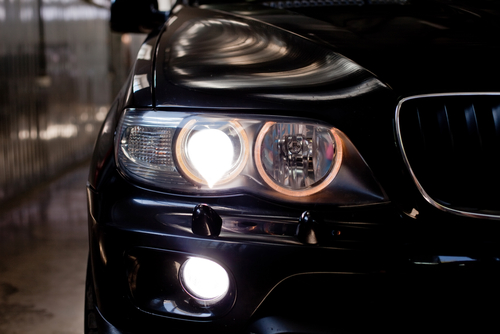It’s becoming all too easy for us to rely on technology. We have apps for pretty much everything, and most of us carry little computers around in our pockets every day. Despite all the conveniences technology offers us, it’s still important to use common sense when it comes to our cars.
Auto Tech Is Advancing Quickly
While it’s true you can usually rely on your car’s sensors to tell you when the air in your tires is low, a brake light is out, or you need to refill your windshield wiper fluid, that doesn’t mean you can ignore routine maintenance.
Our experienced Medford mechanics encourage getting to know your car and being aware of how your car’s technology works, and when it might need maintenance.
Understanding Your Car’s Technology
Newer cars feature so much technology these days, including built-in entertainment systems, keyless ignition, touchless automatic doors and more. Some of this automotive tech is familiar, such as power windows, back-up cameras and all the little lights on your dashboard.
But why all the changes to how our cars function? The motivation for switching cars from solely mechanical operating systems to electronic ones is efficiency. With data being sent at lightning speed any time you operate your car, there’s the potential for everything to run more smoothly and increase fuel economy. Also, car manufacturers are always looking for innovative ways to beat the competition. New tech can give a company the edge to get their new vehicle make or model at the forefront of consumers’ minds.
With more functions in cars than ever before, having a “motherboard” of sorts reduces the amount of wiring housed in your vehicle. Autonomous functions used to have their own individual wiring systems; now everything gets streamlined so it reduces not only the space it all used to take up but also the weight it added to your car. The computers for each specialized function are called Electronic Control Units, or ECUs.
What Electronic Control Units Are in My Car?
Knowing which specific ECUs are in your car varies depending on make and model but, generally, modern cars have up to 70 ECUs. Some are major ones are listed as follows:
- Transmission Control Module / TCM
- Engine Control Module / ECM
- Body Control Module / BCM
- Powertrain Control Module / PCM
- General Electronic Module / GEM
- Suspension Control Module / SCM
Each ECU controls its own element of your vehicle, and they also communicate with each other for the sake of the aforementioned efficiency and vehicle performance.
What is CAN Bus?
As a whole, all the control modules and electronic control units in your vehicle are referred to as CAN Bus. This stands for Controller Area Network bus – with “bus” referring to the communication network between all the electronic systems of your vehicle. As auto tech continues to increase in sophistication, CAN Bus has proven to be a bit too expensive to keep up with the growth. That’s why Local Interconnect Network (LIN Bus) is now implemented for use with lower priority systems, such as:
- Air conditioning
- Temperature sensor
- Rain sensor
- Sunroof
- Cruise control
- Seat positions
- Side view mirrors
- Non-essential lighting
CAN Bus and LIN Bus work together to keep your car in good working order, sending data with just the push of a button or flick of a switch.
Can I Add Aftermarket Tech to My Car?
Despite all these upgrades in automotive tech, you can continue to add unique customizations to your car. You’ll want to be sure you understand how you’re potentially modifying the electronic systems already in place before making changes, though. Here are some upgrades our Medford mechanics recommend:
- Mobile hot spot – Some phone service providers have physical plugins you can add to your car to create a mobile hotspot and GPS tracker (great for young drivers who may need accountability).
- Bluetooth – If your car doesn’t already have Bluetooth capability, you can plug a Bluetooth receiver into your car so it can communicate with your phone. This makes it easier to take hands-free calls while driving and play music from your mobile device.
- Dashboard cameras – You could choose a standalone dashcam, or one that also plays music, provides GPS and more.
- Car health tracker – This is another physical device that plugs into your car and can connect with a multitude of electronic systems. If anything is malfunctioning, this type of device can read the automotive codes and translate them for you to identify the problem. The device syncs with an app on your phone so you can have convenient access to the health of your car at all times.
Schedule Regular Auto Repair
You are welcome to wait to change your oil when a “Maintenance Required” or “Oil Pressure” indicator is illuminated on your dashboard. Or, you can avoid engine trouble by scheduling a regular oil change with Schulz Garage. Waiting for a computer to tell you some of your fluids are low, or need changing, can mean you’re already on your way to more costly repairs. So while all this automotive tech is incredibly helpful, it shouldn’t replace the age-old practice of getting familiar with one’s car and knowing when something isn’t right.

